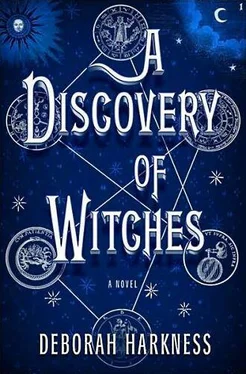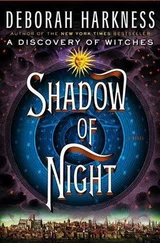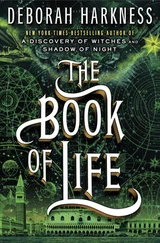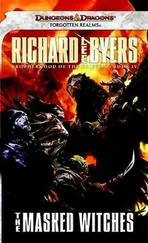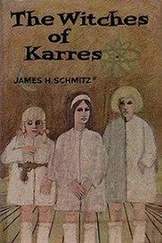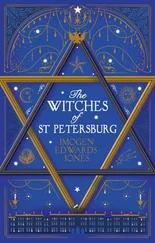Matthew remained with the army long after Lafayette returned to France. Marcus continued to serve, too, as a lowly surgeon’s assistant. Day after day he tried to stanch the wounds of soldiers injured by musket, cannon, and sword. Clairmont always sought him out whenever one of his own men was injured. Marcus, he said, had a gift for healing.
Shortly after the Continental Army arrived in Yorktown in 1781, Marcus caught a fever. His gift for healing meant nothing then. He lay cold and shivering, tended to only when someone had the time. After four days of suffering, Marcus knew he was dying. When Clairmont came to visit some of his own stricken men, accompanied once again by Lafayette, he saw Marcus on a broken cot in the corner and smelled the scent of death.
The French officer sat at the young man’s side as night turned toward day and shared his story. Marcus thought he was dreaming. A man who drank blood and found it impossible to die? After hearing that, Marcus became convinced that he was already dead and being tormented by one of the devils his father had warned him would prey on his sinful nature.
The vampire explained that Marcus could survive the fever, but there would be a price. First he would have to be reborn. Then he would have to hunt, and kill, and drink blood—even human blood. For a time his need for it would make working among the injured and sick impossible. Matthew promised to send Marcus to university while he got used to his new life.
Sometime before dawn, when the pain became excruciating, Marcus decided he wanted to live more than he feared the new life the vampire had laid out for him. Matthew carried him, limp and burning with fever, out of the hospital and into the woods, where the Oneida waited to lead them into the mountains. Matthew drained him of his blood in a remote hollow, where no one could hear his screams. Even now Marcus remembered the powerful thirst that had followed. He’d been mad with it, desperate to swallow anything cold and liquid.
Finally Matthew had slashed his own wrist with his teeth and let Marcus drink. The vampire’s powerful blood brought him back to startling life.
The Oneida waited impassively at the mouth of the cave and prevented him from wreaking havoc on the nearby farms when his hunger for blood surfaced. They had recognized what Matthew was the moment he appeared in their village. He was like Dagwanoenyent, the witch who lived in the whirlwind and could not die. Why the gods had decided to give the French warrior these gifts was a mystery to the Oneida, but the gods were known for their puzzling decisions. All they could do was make sure their children knew Dagwanoenyent’s legend, carefully instructing them how to kill such a creature by burning him, grinding his bones into powder, and dispersing it to the four winds so that he could not be reborn.
Thwarted, Marcus had behaved like the child he was, howling with frustration and shaking with need. When Matthew hunted down a deer to feed the young man who had been reborn as his son, Marcus quickly sucked it dry. It sated his hunger but didn’t dull the thrumming in his veins as Matthew’s ancient blood suffused his body.
After a week of bringing fresh kills back to their den, Matthew decided Marcus was ready to hunt for himself. Father and son tracked deer and bear through deep forests and along moonlit mountain ridges. Matthew trained him to smell the air, to watch in the shadows for the smallest hint of movement, and to feel changes in the wind that would bring fresh scents their way. And he taught the healer how to kill.
In those early days, Marcus wanted richer blood. He needed it, too, to quench his deep thirst and feed his ravenous body. But Matthew waited until Marcus could track a deer quickly, bring it down, and drain its blood without making a mess before he let him hunt humans. Women were off-limits. Too confusing for newly reborn vampires, Matthew explained, as the lines between sex and death, courtship and hunting, were too finely drawn.
First father and son fed on sick British soldiers. Some begged Marcus to spare their life, and Matthew taught him how to feed on warmbloods without killing them. Then they hunted criminals, who cried for mercy and didn’t deserve it. In every case Matthew made Marcus explain why he’d picked a particular man as his prey. Marcus’s ethics developed, in the halting, deliberate way that they must when a vampire comes to terms with what he needs to do in order to survive.
Matthew was widely known for his finely developed sense of right and wrong. All his mistakes in judgment could be traced back to decisions made in anger. Marcus had been told that his father was not as prone to that dangerous emotion as he’d been in the past. Perhaps so, but tonight in Oxford, Matthew’s face wore the same murderous expression it had at Brandywine—and there was no battlefield to vent his rage.
“You’ve made a mistake.” Matthew’s eyes were wild when he finished poring over the witch’s DNA tests.
Marcus shook his head. “I analyzed her blood twice. Miriam confirmed my findings with the DNA from the swab. I admit the results are surprising.”
Matthew drew in a shaky breath. “They’re preposterous.”
“Diana possesses nearly every genetic marker we’ve ever seen in a witch.” His mouth tightened into a grim line as he flipped to the final pages. “But these sequences have us concerned.”
Matthew leafed quickly through the data. There were more than two dozen sequences of DNA, some short and some long, with Miriam’s tiny red question marks next to them.
“Christ,” he said, tossing them back at his son. “We already have enough to worry about. That bastard Peter Knox has threatened her. He wants the manuscript. Diana tried to recall it, but Ashmole 782 has gone back into the library and won’t come out again. Happily, Knox is convinced—for now—that she first obtained it by deliberately breaking its spell.”
“She didn’t?”
“No. Diana doesn’t have the knowledge or control to do anything that intricate. Her power is completely undisciplined. She put a hole in my rug.” Matthew looked sour, and his son struggled not to smile. His father did love his antiques.
“Then we’ll keep Knox away and give Diana a chance to come to terms with her abilities. That doesn’t sound too difficult.”
“Knox is not my only concern. Diana received these in the mail today.” Matthew picked up the photograph and its accompanying slip of paper and handed them to his son. When he continued, his voice had a dangerous, flat tone. “Her parents. I remember hearing about two American witches killed in Nigeria, but it was so long ago. I never connected them to Diana.”
“Holy God,” Marcus said softly. Staring at the picture, he tried to imagine what it would be like to receive a photo of his own father ripped to pieces and tossed into the dirt to die.
“There’s more. From what I can piece together, Diana has long believed that her parents were killed by humans. That’s the chief reason she’s tried to keep magic from her life.”
“That won’t work, will it?” muttered Marcus, thinking of the witch’s DNA.
“No,” Matthew agreed, grim-faced. “While I was in Scotland, another American witch, Gillian Chamberlain, informed her that it wasn’t humans at all—but fellow witches—who murdered her parents.”
“Did they?”
“I’m not sure. But there’s clearly more to this situation than a witch’s discovery of Ashmole 782.” Matthew’s tone turned deadly. “I intend to find out what it is.”
Something silver glinted against his father’s dusky sweater. He’s wearing Lazarus’s coffin, Marcus realized.
No one in the family talked openly about Eleanor St. Leger or the events surrounding her death, for fear of driving Matthew into one of his rages. Marcus understood that his father hadn’t wanted to leave Paris in 1140, where he was happily studying philosophy. But when the head of the family, Matthew’s own father, Philippe, called him back to Jerusalem to help resolve the conflicts that continued to plague the Holy Land long after the conclusion of Urban II’s Crusade, Matthew obeyed without question. He had met Eleanor, befriended her sprawling English family, and fallen resolutely in love.
Читать дальше
